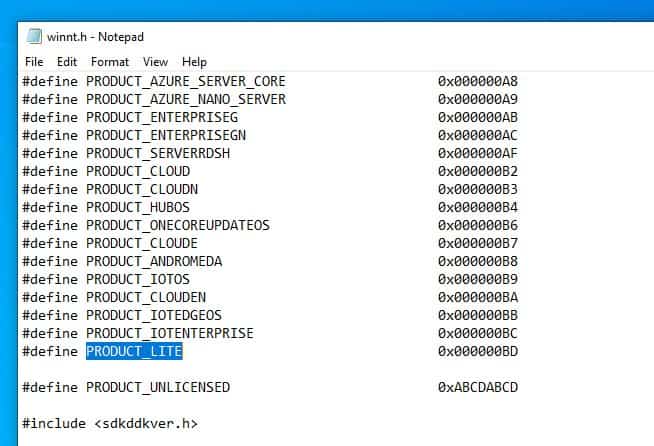by Martin Brinkmann on December 03, 2018 in Windows – 6 comments
While Microsoft’s Windows operating system is still going strong, the company is facing tough competition in the classroom and Universities. Google Chromebooks are doing well there thanks to a combination of cheap prices and ease of use; Chromebooks use cloud storage and syncing functionality that is built deeply into the operating system.
Microsoft launched two products in the past designed to compete in the low-end market: Windows RT and Windows 10 S. The main issue with both products was that they carried all the ballast of full versions of Windows without really offering anything that made devices running these versions of Windows attractive.
The devices did not offer better battery life, were excluded from the attractive software catalog and limited to Store apps, online services, and PWAs. Not many wanted to run a device with Windows that could not run Windows games or applications, most of them at least.

Third time’s a charm, as rumors surfaced that Microsoft is working on yet another restricted version of Windows called Windows Lite. Whether that is just a more recent version of Windows Cloud, which leaked in 2017, remains to be seen.
Tero Alhonen spotted the new SKU Lite in Windows 10 SDK 18282 and Brad Sams suggested over on Petri.com that Microsoft will position it to target Chromebooks.
Windows 10 Lite will run UWP applications and PWAs only, according to Sams, who dug deep into builds and talked to “a couple insiders”. What sets this apart from Windows RT or Windows 10 S is the fact that Microsoft removed parts that are not required to run PWAs or Universal Platform Applications.
Sam’s calls it a “truly lightweight version of Windows” and suggests that it will not be sold openly but will be for OEMs exclusively. Devices could be powered by the next Qualcomm processor or Intel processors.
Closing Words
It is not clear if Lite will indeed be Microsoft’s third attempt at establishing a low cost device in a market that Windows devices have not performed overly well in previously.
Lite may still feature a desktop interface that resembles Windows 10 and if Microsoft managed to throw a lot of components overboard, it could show in battery life and performance.
Windows Lite could be unveiled in 2019 officially.
Now You: What is your take on Windows Lite? Another Windows RT? Or something that could succeed?